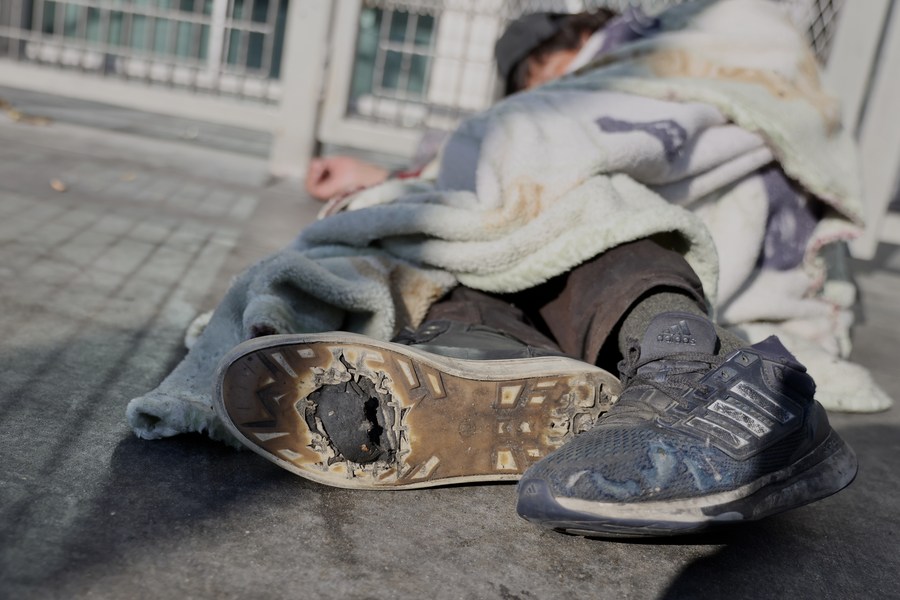Fentanyl is solely American problem, and it blames China
Xinhua | Updated: 2023-07-19 09:18
WASHINGTON'S BOTCHED RESPONSE

Now the epidemic is wreaking havoc on the US economy and workforce, but Washington, though fully aware of it, seemed at its wits' end over how to fix it fundamentally, if not uninterested.
Without investing sufficient resources in helping patients, the US government left hundreds of thousands of citizens at the mercy of new and more drugs, condemned to endure recurring tragedies.
According to the US Centers for Disease Control and Prevention (CDC), 107,375 people in the United States died of drug overdoses and drug poisonings in the 12-month period ending in January 2022, with a staggering 67 percent of them involving synthetic opioids like fentanyl.
"This is the price of liberalism. Society needs rules and regulations and they need to be enforced," said a British netizen by the name of BugKhan from Bradford.
Mexican President Andres Manuel Lopez Obrador in April questioned the US strategy against the fentanyl crisis, saying it was relying on "palliatives" instead of tackling the root of the problem.
Behind a botched response from the previous US administrations and the incumbent Biden administration is a sophisticated institutional fabric which has long frayed efforts to tackle the roots of social problems.
First, US politicians knuckle under money politics.
Sizable political donations from pharmaceutical companies require them to turn a blind eye when formulating control policies for related drugs.
Ironically, the United States, a major chemical raw material country, has not yet permanently scheduled fentanyl-related substances.
By contrast, China took the lead in including the entire category of fentanyl-related substances in a controlled regulatory list as early as in May 2019, a step conducive to preventing illicit manufacturing, trafficking and abuse of the substance.
As the British newspaper the Guardian reported in 2017, pharmaceutical companies in the United States spent far more than any other industries to influence politicians. "Drugmakers have poured close to 2.5 billion US dollars into lobbying and funding members of Congress over the past decade."
Besides, nine out of 10 members of the House of Representatives and all but three of 100 senators have "taken campaign contributions from pharmaceutical companies seeking to affect legislation on everything from the cost of drugs to how new medicines are approved."
Moreover, medical representatives, who play a very important role in the US medical system, lobby doctors to prescribe medicines by means of lecturing and funding, giving rise to more addictions.
Second, political polarization hinders drug control.
While both parties admit that they need to tackle fentanyl abuse as the problem gets increasingly out of control in the United States, they have been stumbling each other and stalling progress.
In May, the Republican-led US House of Representatives approved the Halt All Lethal Trafficking of Fentanyl Act in an 289-133 vote that saw 132 Democrats oppose the bill even though the White House signaled support for it.
Drug control requires large funding and a detailed plan. No progress in the anti-drug war that began in the 1970s was made as the two parties have held each other back. The situation worsened as more fentanyl-related overdose deaths were registered in the United States.
American politicians are well aware that this fentanyl crisis was triggered by various factors including domestic politics, economy and social divisions. It did not develop overnight, nor can it be resolved overnight.
However, Washington finds it much easier to blame China for its own inadequate supervision on fentanyl when the problem is in essence demand-driven and a product of US institutional failure.
The United States needs to reflect on itself, strengthen regulation and control of prescription drugs at home, step up public awareness campaigns about the harm of narcotics, and reduce domestic demand for drugs, instead of smearing and discrediting other countries, as such irresponsible acts do no good to global anti-drug efforts. Nor can they help the United States fix the intractable scourge at home.
























